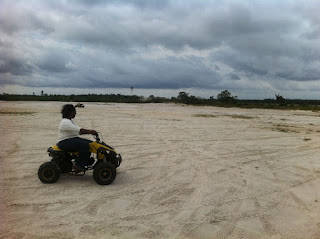If you live in Lagos, Nigeria's sprawling commercial capital or are simply visiting, you can now see some of Africa's wildlife up close. Located in a suburb 40 kilometres outside of the city, is the Omu resort which houses a zoo and an amusement park.
Opened in 2014, Omu resort hopes to draw local residents and attract tourists coming to the West African country.
Olabisi Falase, the resort's Public Relations Officer says they have invested over 836 million naira (4,201,005 U.S. dollars) in the facility.
"We opened up this resort as a result of lack in the tourism industry. For a couple of people we had asked about tourism in Lagos, there really are no tourist destinations apart from only a handful. We wanted to have something unique, something that contains quite a number of activities. You know we have a zoo, an amusement park, we have a sea world, go-carting, quad-biking, and we have a fun area, play area for kids," he said.
Nigeria is putting plans in place to revamp its tourism industry as part of efforts to wean the country off its reliance on oil revenue. A slump in global prices is hammering the West African giant's economy.
Some of its tourist destinations include game and nature reserves. But many of these are located far away from major cities.
Since its opening a little over a year ago, the resort has hosted nearly 450,000 visitors.
Some of the animals were brought in from Cameroon and Niger.
Apart from the zoo and amusement park, the resort also offers quad biking facilities and a play areas for children.
Link to the video: Zoo boosts Nigeria's tourists attraction
Pics courtesy: Angela Ukomadu


















































